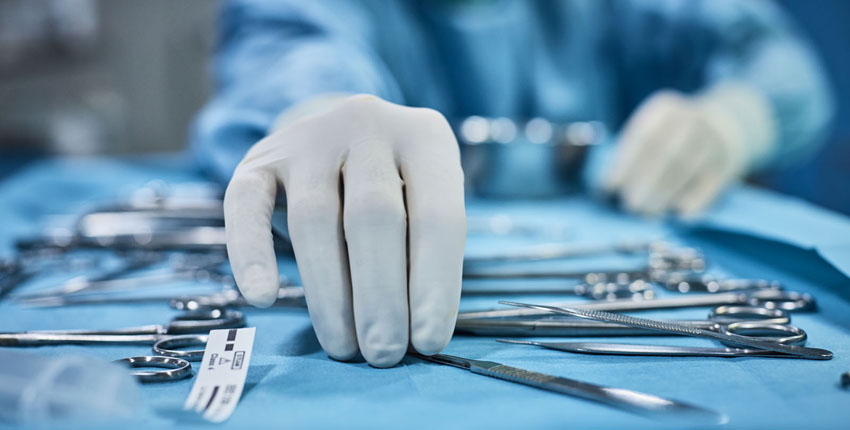Introduction
A nontoxic multinodular goitre thyroid gland condition known as nontoxic multinodular goitre (MNG) is characterised by the presence of thyroid nodules. These nodules do not overproduce thyroid hormones and are not malignant. This thyroid ailment, commonly known as a nodular goitre, affects a large number of people.
What is Nontoxic Multinodular Goiter?
Nontoxic multinodular goitre is the Nontoxic Multinodular Goiter term used to describe the swelling of the thyroid gland as a result of several nodules developing. The major job of the thyroid gland, a butterfly-shaped structure in the front of the neck, is to produce and control thyroid hormones, which are necessary for several body processes. The thyroid gland enlarges in nontoxic multinodular goitre but neither hyperthyroidism nornontoxic multinodular goitre hypothyroidism is brought on.
Causes and Risk Factors
It is unclear what causes nontoxic multinodular goitre exactly. However, the following elements may have an impact on its development.
Iodine Deficiency: Goitres can develop as a result of inadequate iodine intake, a nutrient essential for the production of thyroid hormones. Nontoxic multinodular goitre is more common in areas with poor dietary iodine consumption.
Symptoms and Diagnosis
Nontoxic multinodular goitre frequently goes unnoticed by patients. The goitre may be found inadvertently on imaging tests or during a routine physical examination. However, the following signs could manifest when the nodules enlarge or multiply.
Swelling or enlargement of the neck: Nontoxic multinodular goitre frequently exhibits neck swelling or enlargement symptoms.
Multiple nodules on Nontoxic Multinodular Goiter the thyroid gland can cause the thyroid gland to enlarge and create noticeable swelling in the neck region. This enlargement may be apparent and may have an impact on the person’s comfort and look.
Difficulty swallowing or breathing: Having trouble breathing or swallowing is a worrying symptom of nontoxic multinodular goitre. These issues can arise as the goitre grows, putting pressure on the oesophagus or windpipe.
Breathing may become blocked or constrained, and swallowing may become difficult or painful. These signs should not be disregarded, and you should see a doctor right away. A medical expert will assess the condition’s severity and decide on the best course of action.
Treatment Options
Nontoxic multinodular goitre treatment is based on several variables, including the size of the goitre, the presence of symptoms, and the preferences of the individual patient. Options for treatment include. Observation: A “watchful waiting” strategy may be used if the goitre is tiny, asymptomatic, and does not pose any difficulties. Any adjustments will be carefully supervised with the help of routine monitoring and follow-up visits.
Radioactive Nontoxic Multinodular Goiter iodine therapy: In some circumstances, radioactive iodine may be used to shrink a goitre or regulate the growth of nodules. Larger goitres or situations where surgery is not an option are often the only times this treatment is used.
Living with Nontoxic Multinodular Goiter
In addition to medical treatment, various lifestyle changes can aid in the proper management of nontoxic multinodular goitre.
Adequate Iodine Intake: Include iodine-rich items in your diet, such as dairy products, shellfish, and iodized salt. However, before making any major dietary changes,
Attend routine follow-up appointments to keep tabs on the growth and development of the goitre. Regular ultrasonography exams and thyroid function tests can assist detect any changes and direct additional medical decisions.
Observation of Symptoms: Pay attention to any new symptoms or changes in the goitre’s size. Inform your healthcare practitioner of any worries as soon as possible.
Stress management: Lower your stress levels by meditating, doing deep breathing exercises, or taking up a hobby that you enjoy.
Healthy lifestyle: To support general health and well-being, maintain a balanced diet, engage in regular exercise, and obtain enough sleep.
Conclusion
A thyroid gland condition known as nontoxic multinodular goitre is characterised by the appearance of many thyroid nodules. The syndrome can result in goitre growth and associated consequences while being generally non-cancerous and without producing noticeable symptoms. Depending on the situation, there are several medical treatment choices, such as observation, medication, surgery, or radioactive iodine therapy. People with nontoxic multinodular goitre can collaborate closely with healthcare providers to effectively manage their illness and preserve optimal thyroid health by being aware of the available Nontoxic Multinodular Goiter causes, symptoms, and therapies.
Frequently Asked Questions
Is thyroid cancer possible in non-toxic multinodular goitre?
No, thyroid cancer is not directly increased by nontoxic multinodular goitre, which is itself a benign illness. Any worrisome nodules should be examined further because it is possible for nodules within a goitre to be malignant.
Does non-toxic multinodular goitre run in families?
Nontoxic multinodular goitre may have a hereditary Nontoxic Multinodular Goiter predisposition to develop, and it occasionally runs in families. Iodine deficiency, for example, also contributes to its development.
Can nontoxic multinodular goitre symptoms get worse under stress?
Stress itself could not contribute to the condition’s deterioration, but it can intensify the symptoms of nontoxic multinodular goitre. These symptoms can be reduced with the aid of stress management approaches.
What should I do if I have a benign multinodular goitre and find it difficult to swallow?
It’s critical to get medical help right away if you have breathing or swallowing issues. Further testing and treatment may be required since these symptoms could point to the larger goitre compressing the oesophagus or windpipe.
Alternative methods of treating nontoxic multinodular goitre exist.
While medical care is the main strategy, some people might look into Nontoxic Multinodular Goiter complementary and alternative therapies.


